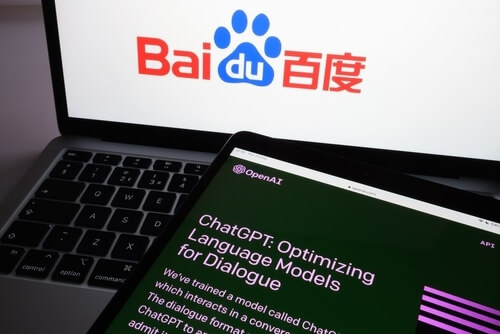Chinese search giant Baidu Inc.’s flagship artificial intelligence (AI) chatbot, Ernie, has reportedly been involved in a key military research, raising concerns over a possibly retaliatory response from the US.
The report from a Hong Kong-based newspaper said a research lab linked to the People’s Liberation Army (PLA) Strategic Support Force, which leads cyberwarfare, has used Baidu’s large language model (LLM) and iFLYTEK’s Spark to test a new AI system.
The search engine firm immediately denied any relation or ties with the institute, stating that the Ernie bot associated with the assessment could have been a version available to the public.
Accessing the link to the lab’s research paper on the matter now presents a ‘404’ error for Hong Kong and Taiwan users, although users in mainland China can still view the document.
The article has been updated to eliminate a mention of a ‘physical link’ between the Ernie bot and the PLA association without reason.
Baidu’s Reported Military Ties Raise US Sanction Concerns
While Baidu has publicly refuted claims of its affiliation with the lab, the news still created a cause for concern about the US government considering introducing restrictions on Chinese companies to prevent such partnerships, seeing the two countries are looking into possible use-cases of AI in the military.
Executive director Steven Leung said people are worried that Washington might announce sanctions aimed at the Beijing-based company. Furthermore, investor sentiment over China is currently weak, and the relationship between the US and China remains intense.
Baidu released the Ernie bot on March 2023 to rival OpenAI Inc.’s ChatGPT amid a frenzy over AI models. The Beijing-based company started monetizing its chatbot late last year, registering better sales in the third quarter due to revenue from its AI products.
Baidu’s local peers, including Alibaba Group Holding Ltd. and Tencent Holdings Ltd., have also joined the race to launch their own LLMs in 2023.
However, China’s AI journey faces a tough road, mainly because Washington prohibited the sale of critical AI-linked chips to firms in the country. The ban has kept US tech giant and global chip designer Nvidia Corp. from selling its latest chips in China.
Alibaba and Tencent have cautioned that the sanctions may hinder their efforts in AI development, while China has responded to the US’s restrictions by imposing its own prohibitions.











